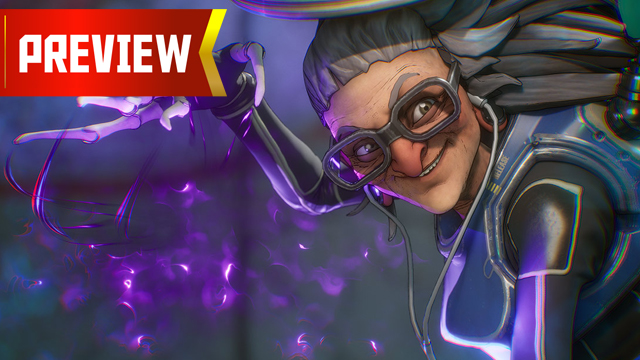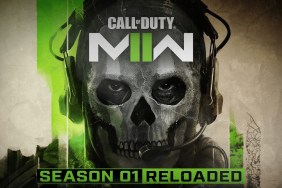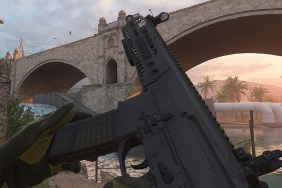Ninja Theory is known for vibrant worlds, memorable swordplay, and the occasional redhead in it the single-player world of video games. But in the online space, it isn’t known at all. Bleeding Edge is the newly Microsoft-owned studio’s chance to change that notion and graft its offline successes onto an online game. While multiplayer games are typically tested after their launch, Bleeding Edge is positioned to give Ninja Theory its fitting debut into the multiplayer space.
It fits Ninja Theory because it is an unabashedly stylish melee fighter at its core. Even if the offbeat characters within the cast have some sort of ranged ability, the game can only truly be played at close ranges. But they can’t be just simply classified as “Sword Guy” and “Like Sword Guy But Bigger And Slower” and that failure to pigeonhole them into an established niche is one of the game’s biggest strengths.
Bleeding Edge Preview | A complete cast of kooks
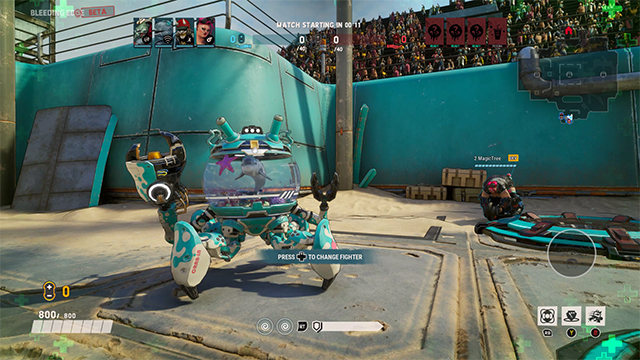
Aided by its bright art style that isn’t too far from Overwatch, Bleeding Edge is full of immediately intriguing characters you want to learn more about and play from a saw blade, motorcycle woman to a pro gamer floating in his own futuristic DXRacer chair that shoots healing beams. Their designs are intricate and can’t be pinned on any one archetype, making them unique from one another and other characters in competing games. Nailing that sort of character design is difficult, as signaled by the many games that fail at it, and is what instantly gives Bleeding Edge an edge.
Ninja Theory’s colorful crew is aided by its bright, exaggerated art style that makes it stand out. Principal Animator Warwick Mellow described that a realistic style can be quite limiting and when your art is limited, so are your characters. And when your characters are limited, people won’t want to play your game as they are the stars of the show. All of the 11 current characters (and 12, including the free DLC character coming after launch) are inviting in different ways and even if some people don’t like everyone, that’s just fine.
“We also pushed hard because we wanted people to find their characters,” said Mellow. “You may not love every character, but you will find that singular character that you really like and that’s more important to this kind of game.”
ALSO: Bleeding Edge release date revealed
The lively yet absurd roster is the result of constant iteration. Lead Artist Aaron McElligott spoke about how the first idea doesn’t always stick, but repeatedly churning through concept after concept will eventually lead to some gold.
“We try quite a few things,” he admitted. “With Maeve, for example, it would have been very easy to make someone who is beautiful and elegant, but what is the next thing? It could be this person. Cool. But what is the next thing? But you just keep pushing until you almost run out of ideas. And then one of them will click and everyone will come through with ideas.”
Ideas can come from a gameplay need, artistic idea, or a fusion of both. Like Mekko, the game’s bizarre dolphin in a mech (which we will have a whole feature on later), started out as a mere idea. Maeve, the geriatric spellcaster, met the “mage” criteria given by Rahni Tucker, the creative director. And Cass, a human with cassowary-like augments, began as an idea until she was later grafted onto the need for a ranged melee character.
Bleeding Edge Preview | Depth from simplicity
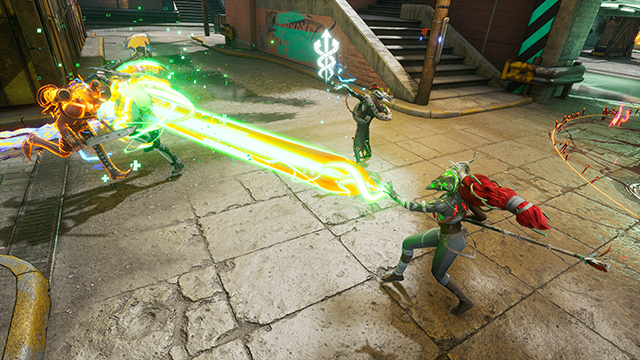
Gameplay abilities often go through heavy iteration, too, and feel similarly honed. Each fighter has only a few powers that range from a passive, an ultimate, and three or so predicated on a cooldown and they are all pretty simple to understand.
Some causes status ailments, others protect yourself or your allies in one way or another, and the rest either have some creative way to dole out damage or health. Each of the three classes — tank, support, and damage — all depend on each other and ensures that teams play each other to come out on top. However, the game is probably going to need a role lock feature to keep jerks from just picking damage heroes in addition to an oppressive amount of healing, which seemed common. Even with that potential issue on the horizon, its melee focus and wide ability pool combine and form a completely unique experience unlike other multiplayer games.
Since there are no snipers and ranged weapons have relatively short ranges, battles are usually just one big, chaotic cluster where abilities are constantly popping off. These battles take concentration as you decide which one of your tools to use. Since each move is pretty straightforward, you won’t be fumbling with what key they are on or what they do, even with the more advanced heroes. You just have to focus on what to do and not wonder what to press or what everything does, eliminating any big learning curve that doesn’t appear to come at the cost of depth.
Bleeding Edge Preview | Dante’s legacy
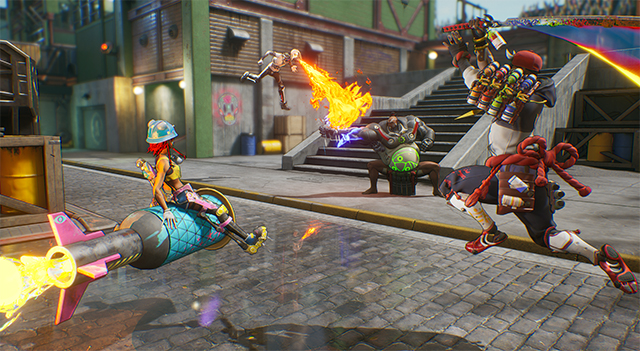
It’s no surprise that these abilities feel great, too. Whether you’re shooting, slashing, dodging, parrying, or using your abilities, the controls are fluid and about in line with what you’d expect from the DmC Devil May Cry team. Bleeding Edge did spawn out of the will to make a multiplayer game like DmC so it’s fitting — and vital — that it nails the feel of the core gameplay. Any hint of lag would kill the experience.
The combination of online multiplayer and DmC-like melee combat was a dream for Tucker, but that doesn’t mean it was easy. The lessons learned from DmC don’t all just transfer into an online space. Dante can do SSS, 85-hit juggles, but there’s obviously none of that in Bleeding Edge as combos have to be fair for both the aggressor and defender.
Advanced action game-esque techniques like canceling abilities and exploiting super armor frames are there, but they have to be more evenly balanced rather than something the attacker can easily do over and over in a single-player game. It’s all a new balance that Ninja Theory is having to learn in a space it isn’t familiar in. Tucker spoke about having to figure out how to empower attacking players while also giving agency to those who are getting hit.
“We knew that that had to be there but everything else was up for grabs,” she said. “It was a matter of prototyping stuff to figure out what worked for multiplayer. It’s kind of obvious stuff, right? Like Dante can do a 100-hit combo on 100 enemies because he’s like a god. But if you put that in a multiplayer game, that is really boring for the guy who is getting comboed.”
Bleeding Edge’s combat is unlike anything else out there, even if there are some obvious parallels to games like Overwatch and DmC. The immaculate character designs and easily understandable array of abilities are reminiscent of Blizzard’s hero shooter while the melee focus isn’t too far removed from Ninja Theory’s experiment with Capcom. Multiplayer titles thrive on new experiences like this, but are also only truly tested when they go live; a trying test that Ninja Theory has never faced. If it’s balanced well and potential team composition issue don’t actually pop up or are addressed, Bleeding Edge has a decent chance of legitimizing the price tag of whatever Microsoft paid for Ninja Theory.
